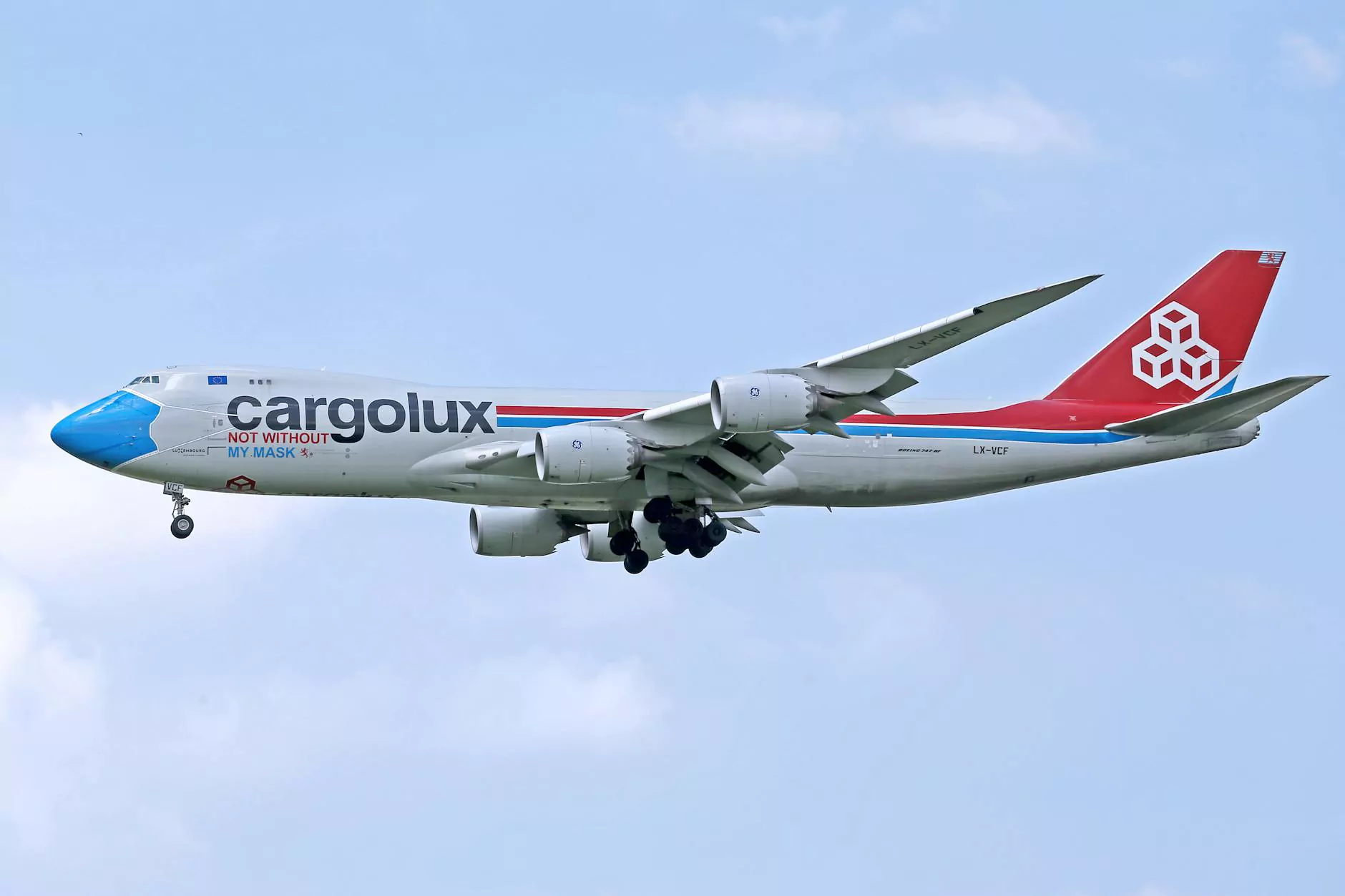Unlocking Success in Global Trade: A Complete Guide to Air Cargo Rates International

In today’s fast-paced global economy, air cargo transportation has become the backbone of international trade. Efficient, reliable, and cost-effective air cargo rates international are critical for businesses aiming to compete on a global scale. This comprehensive guide explores the vital elements influencing air cargo rates, including the strategic importance of shipping centers, transportation logistics, and airport selection. Whether you are a seasoned freight forwarder or a growing enterprise, understanding these components will empower you to optimize your shipping strategies, reduce costs, and increase customer satisfaction.
Understanding the Fundamentals of Air Cargo Rates International
Before diving into strategies to optimize your logistics, it is essential to grasp what determines air cargo rates international. Unlike domestic shipping, international rates depend on a complex web of factors, including weight, volume, distance, fuel costs, and geopolitical considerations.
Key Factors Influencing Air Cargo Rates International
- Weight and Volume: Rates are based on the chargeable weight, which considers both real weight and volumetric weight. Accurate measurements prevent unexpected charges.
- Distance: Longer routes naturally incur higher costs due to increased fuel consumption and flight time.
- Fuel Prices: Fuel surcharges are a significant component, fluctuating with global oil markets.
- Airport and Shipping Centers: Proximity to major hubs and their operational efficiency can drastically affect costs and transit times.
- Freight Class and Nature of Goods: Special handling requirements or hazardous goods may carry premium rates.
- Seasonality and Demand: Peak seasons, such as holidays or peak manufacturing periods, typically elevate rates due to increased demand.
The Role of Shipping Centers in Minimizing Air Cargo Rates International
Shipping centers act as vital nodes in the international logistics network. They facilitate the consolidation, customs clearance, and redistribution of cargo, directly impacting costs and transit efficiency.
Choosing the Right Shipping Centers
- Strategic Location: Selecting centers near manufacturing hubs, ports, and airports minimizes transportation distances.
- Facilities and Services: Modern warehouses equipped with advanced handling technology expedite processing and reduce delays.
- Customs and Security: Efficient customs procedures keep shipments moving swiftly, avoiding unnecessary demurrage and surcharges.
- Connectivity: Centers with excellent links to multiple transportation modes (air, sea, land) provide flexible logistics solutions.
Optimizing Transportation for Cost-Effective International Air Cargo
Transportation methods and planning are crucial for controlling air cargo rates international. The aim is to choose routes, carriers, and schedules that offer the best balance between cost, speed, and reliability.
Airline and Route Selection
Partnering with reputed airlines known for reliable service and competitive rates can lead to significant savings. Direct flights reduce transit time and handling risks, although they may sometimes carry a premium. Conversely, indirect routes with layovers can be more cost-efficient, especially for less time-sensitive shipments.
Freight Consolidation and Groupage Shipping
Consolidating smaller shipments into a single container enhances efficiency and lowers the per-unit cost. Groupage services, where multiple consignments share space, allow businesses to benefit from economies of scale. This strategy is particularly advantageous for companies dealing with frequent, small-volume shipments.
Dynamic Routing and Real-Time Tracking
Using advanced logistics software to adapt routes based on real-time data can avoid congested airspaces and avoid unexpected delays. Accurate tracking also enhances transparency, allowing businesses to inform customers and optimize inventory levels.
Effective Airport Selection: A Critical Element in Managing Air Cargo Rates International
The choice of departure and arrival airports significantly influences shipment costs and delivery times. Critical factors include:
- Airport Congestion: Less congested airports tend to process cargo faster, reducing storage and demurrage fees.
- Connectivity and Frequency: Airports with frequent direct flights to key markets enable more flexible scheduling and reduce transit times.
- Handling Facilities and Capacity: Larger airports with advanced infrastructure can accommodate high volumes efficiently.
- Customs and Security Procedures: Streamlined procedures minimize delays and associated costs.
Leverage Technology and Data Analytics to Reduce Air Cargo Rates International
Innovation and data-driven decision-making can dramatically impact your logistics costs. Implementing integrated supply chain management software and partner platforms like cargobooking.aero can provide:
- Real-Time Rate Comparison: Access to multiple carriers and service options to choose the most cost-effective solution.
- Capacity Management: Predict available space and avoid premium charges for last-minute bookings.
- Shipment Planning: Optimize packing, routing, and scheduling for cost savings and efficiency.
- Transparency and Communication: Keep all stakeholders informed to prevent delays and unexpected costs.
Building a Resilient and Cost-Effective International Shipping Strategy
Successfully navigating air cargo rates international requires a strategic approach that combines operational efficiency, technological adoption, and market awareness.
Key Strategies for Success
- Establish Strong Partnerships: Collaborate with reliable freight forwarders and carriers with proven track records.
- Regularly Review and Negotiate Rates: Use market intelligence and data analytics to negotiate better terms.
- Invest in Training and Technology: Equip your team with the latest tools and knowledge to optimize logistics processes.
- Plan Ahead for Peak Seasons: Advanced booking and flexible scheduling help avoid premium charges and capacity shortages.
- Prioritize Documentation and Compliance: Accurate paperwork and up-to-date customs knowledge prevent delays and penalties.
The Future of International Air Cargo: Trends and Innovations
As global trade evolves, several emerging trends are poised to further transform air cargo rates international and logistics efficiency:
1. Digital and Automated Cargo Handling
Automation reduces processing times and errors, leading to lower operational costs and decreased rates over time.
2. Sustainable Aviation Practices
Green initiatives, such as alternative fuels and eco-friendly aircraft, are expected to influence costs positively and meet increasing environmental regulations.
3. Blockchain and Smart Contracts
Enhanced transparency, security, and efficiency in transactions can result in minimized paperwork, reduced risks, and cost savings.
4. Advanced Analytics and AI
Predictive analytics will enable better capacity planning, demand forecasting, and dynamic pricing strategies for international shipping.
Conclusion: Elevate Your Business by Mastering Air Cargo Rates International
Understanding and effectively managing air cargo rates international is essential for businesses aiming to expand their global footprint, optimize costs, and enhance customer satisfaction. From strategic selection of shipping centers and airports to leveraging technological advancements and data analytics, every element plays a pivotal role in crafting a resilient and cost-effective logistics network.
Partnering with innovative platforms such as cargobooking.aero can provide the competitive edge needed to navigate the complex international air cargo landscape successfully. Keep abreast of industry trends, continuously analyze your logistics processes, and foster strong relationships with reliable carriers to unlock new opportunities for growth and efficiency.
Ultimately, a well-informed, strategic approach to air cargo rates international will empower your business to achieve unparalleled success in the dynamic world of international commerce.









